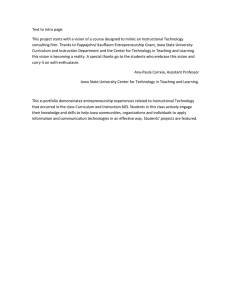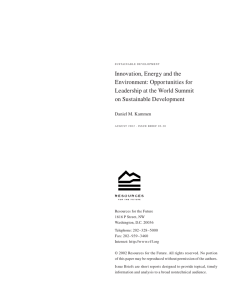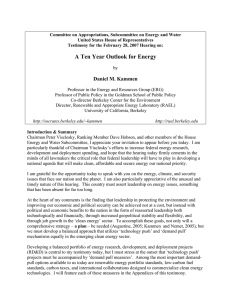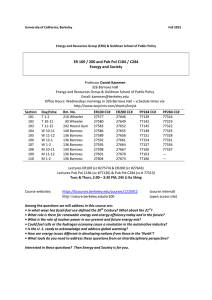Des Moines Register 09-26-06 Iowa, U.S. must invest in renewable fuels.
advertisement
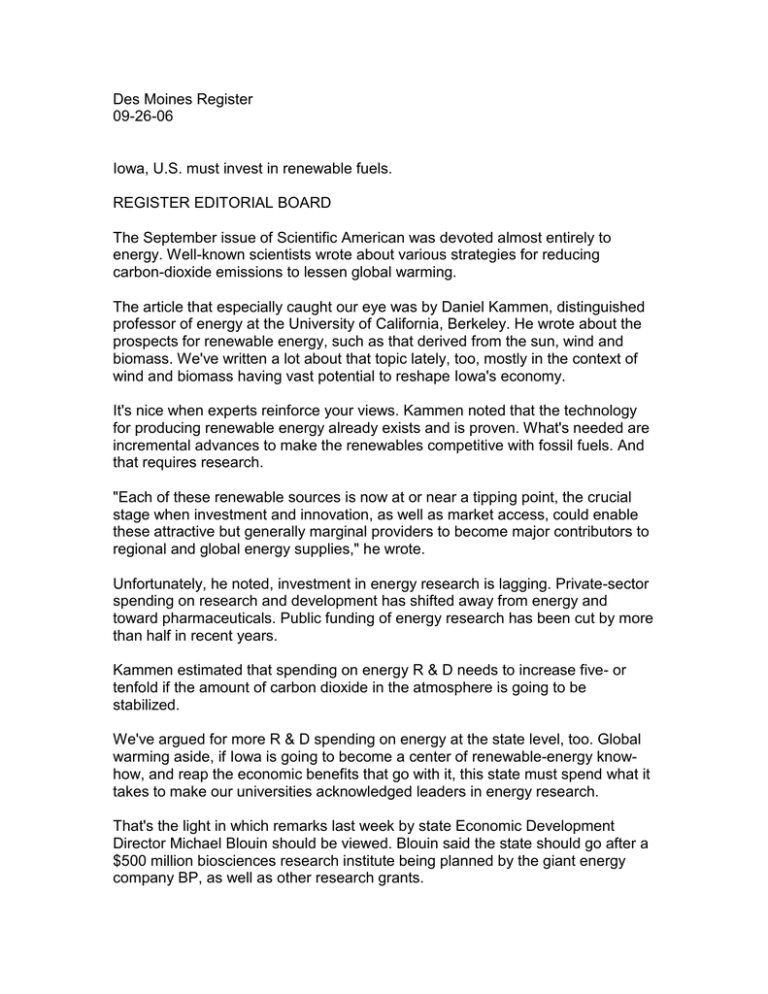
Des Moines Register 09-26-06 Iowa, U.S. must invest in renewable fuels. REGISTER EDITORIAL BOARD The September issue of Scientific American was devoted almost entirely to energy. Well-known scientists wrote about various strategies for reducing carbon-dioxide emissions to lessen global warming. The article that especially caught our eye was by Daniel Kammen, distinguished professor of energy at the University of California, Berkeley. He wrote about the prospects for renewable energy, such as that derived from the sun, wind and biomass. We've written a lot about that topic lately, too, mostly in the context of wind and biomass having vast potential to reshape Iowa's economy. It's nice when experts reinforce your views. Kammen noted that the technology for producing renewable energy already exists and is proven. What's needed are incremental advances to make the renewables competitive with fossil fuels. And that requires research. "Each of these renewable sources is now at or near a tipping point, the crucial stage when investment and innovation, as well as market access, could enable these attractive but generally marginal providers to become major contributors to regional and global energy supplies," he wrote. Unfortunately, he noted, investment in energy research is lagging. Private-sector spending on research and development has shifted away from energy and toward pharmaceuticals. Public funding of energy research has been cut by more than half in recent years. Kammen estimated that spending on energy R & D needs to increase five- or tenfold if the amount of carbon dioxide in the atmosphere is going to be stabilized. We've argued for more R & D spending on energy at the state level, too. Global warming aside, if Iowa is going to become a center of renewable-energy knowhow, and reap the economic benefits that go with it, this state must spend what it takes to make our universities acknowledged leaders in energy research. That's the light in which remarks last week by state Economic Development Director Michael Blouin should be viewed. Blouin said the state should go after a $500 million biosciences research institute being planned by the giant energy company BP, as well as other research grants. Of course it should. It would be crazy not to. Getting research grants and landing projects like the BP institute usually will require matching funds from the state. Iowa State University President Gregory Geoffroy estimated it would take $58 million to build a laboratory to house the BP institute. The state shouldn't shrink from making such investments, because the longrange payoff for Iowa's economy would be incalculable. In fact, if BP chooses another state for its institute, Iowa should press ahead and establish a similar center on its own. Becoming a national or even a world center of renewable-energy knowledge is a once-in-a-century opportunity that Iowa must not be too slow to recognize.

